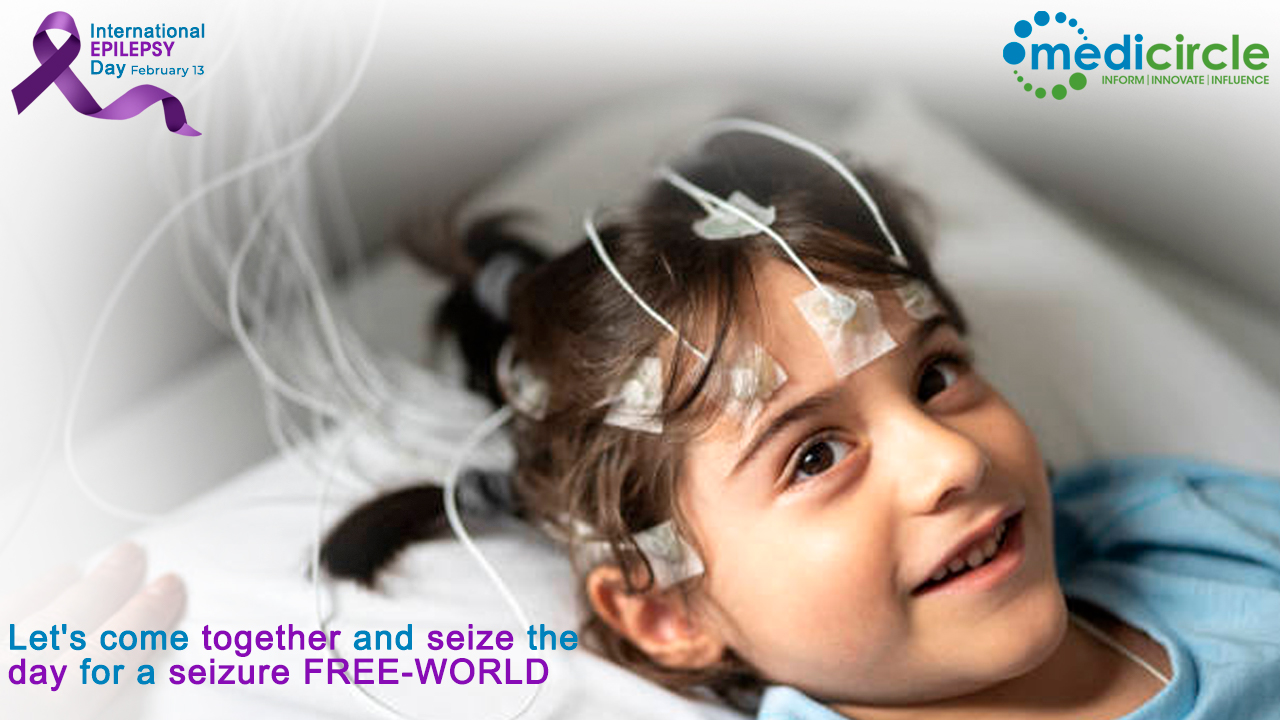World epilepsy Day is observed on second Monday of February every year. It is celebrated to raise an awareness of epilepsy; Epilepsy is the second most common and frequently encountered neurological condition, imposing a significant financial burden on individuals, families, and healthcare systems.
Epilepsy is a neurological disorder in which brain activity is disturbed causing seizures. During seizures, an individual experiences abnormal behavior, symptoms and sensations, sometimes loss of consciousness. It is a non-communicable neurological disorder.
Facts:
As of 2020, about 50 million people were affected by epilepsy.
It's estimated that about 1.2 percent of U.S. people have active epilepsy.
It is estimated that there are more than 10 million persons with epilepsy (PWE) in India. Its prevalence is about 1% in our population.
According to national health portal, estimated three-fourth of affected people in developing countries does not receive the required treatment.
Symptoms:
Depending on the areas of the brain affected and the individual's age, these seizures may present themselves in a variety of ways.
- Stiff muscles
- Vigorous shaking/ uncontrollable jerking movements of arms and legs.
- Fainting
- Temporary confusion
- Fear, anxiety
Types of seizures:
Focal Onset - occur when abnormal electrical activity starts in one area of the brain is called a partial seizure.
Generalized Seizures - start in both sides of the brain. Sometimes, a focal seizure can become generalized if it spreads. For example, people with generalized epilepsy may do better with broad-spectrum medications.
Causes of Epilepsy:
Epilepsy doesn't have any identifiable cause in some people, and in other people the condition can be noticed through various factors including:
- Genetic influence
- Head trauma
- Brain abnormalities
- Stroke
- Infections like Meningitis, HIV, viral encephalitis and some parasitic infections can cause epilepsy.
According to the experts, Upto 70% of people living with epilepsy can become seizure-free with the use of antiseizure medicines. Numerous areas of study into the causes, prognosis, and potential treatments for epilepsy are currently under investigation. Although there’s no cure at this time, the right treatment can result in a significant improvement in your condition and your quality of life.

 Let's educate ourselves and others about epilepsy to reduce the stigma and ensure that they have access to the same opportunities and rights as everyone else.
Let's educate ourselves and others about epilepsy to reduce the stigma and ensure that they have access to the same opportunities and rights as everyone else.









.jpeg)







.jpeg)

.jpg)










